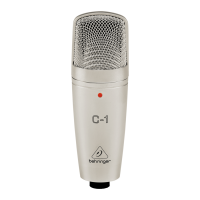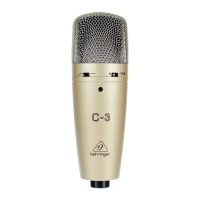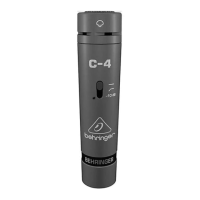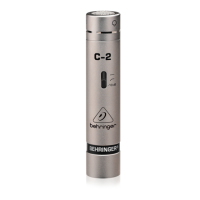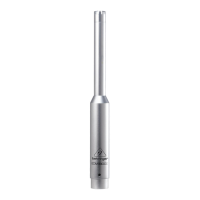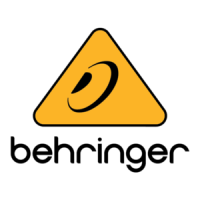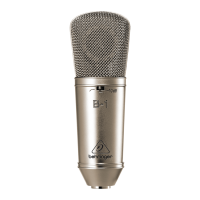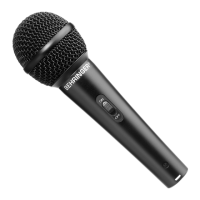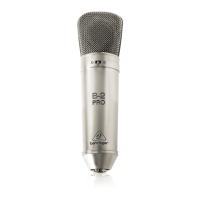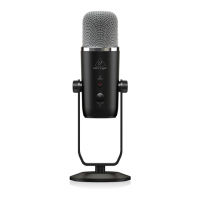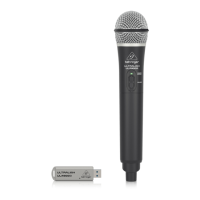3 STUDIO CONDENSER MICROPHONE C-1U Step-by-step installation
Technical specifications and appearance are subject to change without notice. The information contained herein is correct at the time of printing. All trademarks are the property of their respective owners. MUSIC Group accepts no liability for any loss
which may be suffered by any person who relies either wholly or in part upon any description, photograph or statement contained herein. Colors and specifications may vary slightly from product. BEHRINGER products are sold through authorized dealers
only. Distributors and dealers are not agents of MUSIC Group and have absolutely no authority to bind MUSIC Group by any express or implied undertaking or representation. This manual is copyrighted. No part of this manual may be reproduced or
transmitted in any form or by any means, electronic or mechanical, including photocopying and recording of any kind, for any purpose, without the express written permission of MUSIC Group IP Ltd. ALL RIGHTS RESERVED. © 2011 MUSIC Group IP Ltd.
Trident Chambers, Wickhams Cay, P.O. Box 146, Road Town, Tortola, British Virgin Islands
HPX4000
PRODUCER INTERNET CONSUMER
C-1U
WAV MP3
RSS
4. Your First Podcast
Start to produce your rst podcast by recording your voice or an
acoustic instrument. Adust the recording level as required:
◊ Under Windows, you control the mic level via the Volume Control panel
(shortcut: loudspeaker icon found in the taskbar).
◊ On Mac OS, you set the mic level using the Audio Midi Setup.
Using the included Audacity recording software, you can record, edit and save
your recording sessions to your computer’s hard drive. Simply turn up the levels of
the Microphone input and click on the record button in the application to create
a new track and record everything you pick up with your microphone. Be sure to
adjust the input and output levels accordingly. After you have nished recording,
you can edit and then export the recorded material to a common audio format.
Load the audio le into the Kristal Audio Engine application, which enables you
to add multiple tracks (please be aware of copyright issues when using material
that is not your own) and master these to a single, nal stereo track. Since the
Kristal Audio Engine software supports VST plug-ins, you are able to use VST
eects to process your audio material.
Now that you have a nal version you would like to publish as a podcast,
go ahead and compress your audio le to the MP3 le format (after you have
installed the LAME encoder) or convert your le to an available audio format of
your choice. Simply open your audio le in the Audacity software application and
use the Export command in the File menu to save your le.
To publish your podcast, make your new le available online. Upload the
generated le to a server with the Podier software, which assists you to create
a feed for your le, enabling you to enter such information as your podcast’s
URL and title. The feed of your podcast can nally be made accessible to the
public by posting it, for example, to an Internet portal. Congratulations, you have
just published your very rst podcast!

